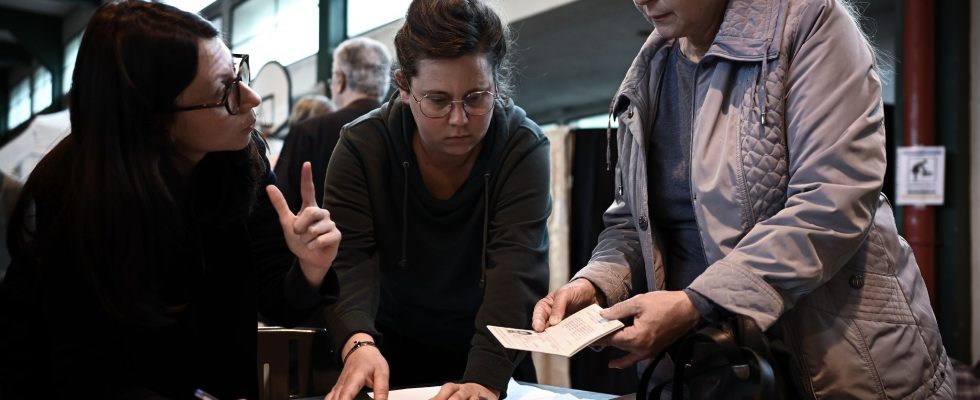For more than a year, Paul Grod’s diary has been precise. Berlin a few days ago, Paris today and Rome next week: the President of the Ukrainian World Congressan organization founded in 1967 which oversees a diaspora of 20 million Ukrainians in more than 65 countries, continues to visit European cities to meet the authorities where millions of refugees have been received since the Russian invasion.
The war in Ukraine has profoundly changed the mission of this peacetime institution, which Paul Grod has chaired since 2018. This lawyer and business leader, one of the most influential in Canada – a country that is home to the largest Ukrainian diaspora in the world – went to the Quai d’Orsay and the Elysée to plead for the sending of arms to Ukraine so that military defense against Russian aggression remains at the top of the French diplomatic agenda. But that’s not all. “The other part of my mission is to visit refugee communities around the world and understand their challenges while ensuring that they are welcomed in good conditions,” he explains.
In the early days of the war, 2 million Ukrainians fled their country via Poland to reach all of Europe. Today, over 8 million refugees are registered on the continent, where they have benefited since March 2022 temporary protection visas. In all countries of the European Union, their validity has been extended until next March.
“France is generous with Ukraine”, estimates Paul Grod, a country which currently hosts 118,000 refugees, even if other European states such as Germany or Poland host up to ten times more.
In France, as everywhere in Europe, integration into societies is going rather well. The refugee profile explains this success: they are young, dynamic, often qualified, qualified and multilingual. In many cases, they are already integrated into the job market, with a good command of computer tools and technology. “For the elderly, it is more difficult, recognizes Paul Grod. Learning the language is sometimes an insurmountable barrier”.
A war effort from abroad
In all the countries where it is present, the Ukrainian diaspora already present before the war is mobilizing to help the refugees. In Canada, an online job bank uses artificial intelligence and allows Ukrainians to identify themselves on online administrative platforms. A little everywhere initiatives are multiplying to facilitate administrative requests and validate the diplomas obtained in their country of origin.
The diaspora plays a major role in the war effort, notably through fundraising campaigns which, for example, enabled the Ukrainian government to buy drones via the platform government “United 24”. “Several hundred million dollars have already been collected across the planet by civil society to buy non-lethal military equipment (helmets, drones, tourniquets, boots, etc.). A lot of start-ups are being created with this in mind” , he adds.
Seated at a Parisian bistro, the businessman who does not leave his laptop also evokes the difficulties of coexistence with the Russian diaspora. “There have been isolated incidents between Ukrainians and Russians”, according to Paul Grod who says he is “appalled by the violence of thought” of Russians residing in European countries. “They remain mostly pro-Putin,” he laments. “They are swallowing propaganda from Russian television and still believe that Ukraine is a Nazi regime controlled by the United States. Absurd!”
Thinking about post-war Ukraine
Even if no one knows when the war will end, Paul Grod is already thinking about the post-war period and the reconstruction of Ukraine. The 8 million refugees in Europe must not take root and settle permanently there, worries the representative of the diasporas. “When the time comes, Ukraine will need all these compatriots to return to the country.” Moreover, Paul Grod prefers to designate them as “temporarily displaced persons” rather than “refugees”.
To preserve a link with the mother country, the practice of the language is essential. The President of the Ukrainian World Congress does not want them to forget their culture, and especially the Ukrainian language. “They learn French but lose their native language, which will be an obstacle to returning to the country.”
This is why the Ukrainian World Congress advocates for the establishment of kindergartens and day care centers in Ukrainian. In a state where President Volodymyr Zelensky has made learning the national language the cornerstone of his policy of derussification of Ukraine, “this is something fundamental”, concludes Paul Grod.
